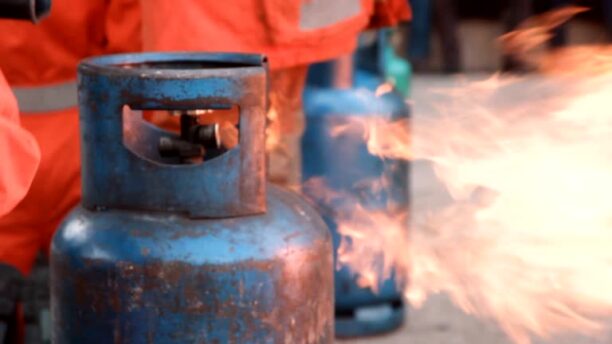Avoiding the Most Common Propane Safety Violations

Propane is a reliable fuel used in homes, businesses, and industrial operations. However, mishandling it can lead to serious safety risks. Many propane safety violations happen because of overlooked procedures, outdated equipment, or improper handling. These violations put people at risk and can lead to fines, service disruptions, or even dangerous accidents. Understanding the most common safety violations and how to prevent them can help propane businesses maintain compliance, protect customers, and operate more efficiently.
Improper Tank Placement and Storage
One of the most frequent propane safety violations involves improper tank placement. Regulations require propane tanks to be installed at safe distances from buildings, ignition sources, and property lines. Tanks too close to homes, grills, or electrical equipment can pose a fire hazard.
To avoid this violation, always follow local and national safety codes for tank placement. Keeping tanks on a stable, well-ventilated surface away from heat sources helps to ensure safety. Regular inspections should verify that tanks remain in the correct position and have not been moved or obstructed by landscaping, debris, or any structures.
Failure to Conduct Regular Leak Checks
Propane leaks can be dangerous if they go undetected. Many safety violations occur when businesses fail routine leak tests, especially after tank installations, repairs, or new connections. Even minor leaks can cause fires or explosions if propane accumulates in an enclosed space.
To prevent this, leak tests should be conducted every time a tank is refilled, reinstalled, or serviced. Propane professionals should use approved leak detection solutions or electronic sensors to identify leaks. Customers should also be educated on how to recognize the smell of propane and what steps to take if they suspect a leak.
Overfilling Propane Tanks
Overfilling propane tanks is another common violation that can create hazardous conditions. Propane expands with temperature changes, so tanks should never be filled beyond 80% of their capacity. When tanks are overfilled, pressure increases, and the relief valve may activate, releasing propane into the air.
Trained personnel should always follow proper filling procedures and use accurate gauges to prevent overfilling. Businesses should also ensure that all propane employees are certified and trained on correct filling techniques.
Using Expired or Damaged Equipment
Propane tanks, hoses, and regulators must be in good condition to operate safely. Many safety violations occur when businesses or customers use expired tanks, damaged regulators, or worn-out hoses. Rusted, cracked, or outdated equipment increases the risk of leaks, malfunctions, and fire hazards.
Regular inspections should be performed to check for wear and tear on propane equipment. Any damaged or outdated parts should be replaced immediately. Businesses should also remind customers to regularly inspect their propane tanks and equipment and replace anything that no longer meets safety standards.
Lack of Employee Training on Propane Safety
Handling propane requires proper training, yet one of the most common violations occurs when employees are not adequately certified or do not follow safety procedures. Inadequate training can lead to mistakes in handling, filling, and transporting propane, increasing the risk of accidents.
Propane businesses should provide ongoing employee training programs, ensuring they understand all safety guidelines, emergency procedures, and proper equipment handling. Keeping employees updated on the latest safety regulations helps reduce violations and creates a safer working environment.
Failure to Follow Transport Regulations
Propane transport is heavily regulated to prevent accidents on the road. Common violations include transporting propane cylinders improperly, failing to secure tanks correctly, and not following weight limits for delivery trucks.
To stay compliant, businesses must follow Department of Transportation (DOT) regulations and local transport laws. Cylinders should be secured upright, and trucks should be inspected regularly to meet all safety standards. Training delivery drivers on proper handling and transport rules is also essential.
Business Implications
Avoiding propane safety violations is not just about following regulations but protecting customers, employees, and the business itself. By staying current with safety standards, conducting regular inspections, and ensuring proper training, propane businesses can do much to prevent accidents and maintain compliance.
A strong focus on safety helps build customer trust, reduces the risk of costly fines, and ensures smooth operations. Taking proactive steps to prevent these common safety violations will keep propane businesses running safely and efficiently while reinforcing a reputation for reliability in the industry.










